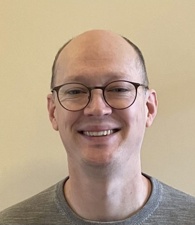Making an open source package - lessons learned
Making an open source package is pretty hard in 2024. Expectations are high, and there’s a lot to take into account. I recently developed an open source package. This talk covers what worked, what didn’t work, what I would do again and what I would do differently.
I developed an open source package called “scores” ( https://github.com/nci/scores , https://scores.readthedocs.io/ ). This is not a presentation about what “scores” does, but instead covers the lessons I learned. Despite being an experienced software developer and having used lots of open source software, there was still a lot to learn (and a lot to figure out) about open source package maintenance.
Every package is different, but this is what I did and these are the lessons I learned.
- Technical Matters:
- How to lay things out on disk
- Configuration files
- Automated testing
- Type hinting
- Linting and other static analysis tools
- Code layout and design
- Documentation:
- What documentation to produce
- Picking and using a tech stack
- Rendering (documentation often renders differently in different locations)
- Ecosystem Integration:
- How to fit in well with the tools around you
- Versioning
- Publishing to PyPI
- How and what to automate
- How to do releases
- Community Considerations:
- Code review standards
- Clear presentation of information
- Understanding your user base and audience
Making an open source package is pretty hard in 2024. Expectations are high, and there’s a lot to take into account. I recently developed an open source package. This talk covers what worked, what didn’t work, what I would do again and what I would do differently.

Tennessee Leeuwenburg is a data scientist and software developer with over 20 years of experience. He has an interest in open source software, machine learning, and forecast verification. His current research work includes the development of scientific machine learning models for weather and environmental prediction. For an overview of his recent publications, please visit https://orcid.org/0009-0008-2024-1967 .